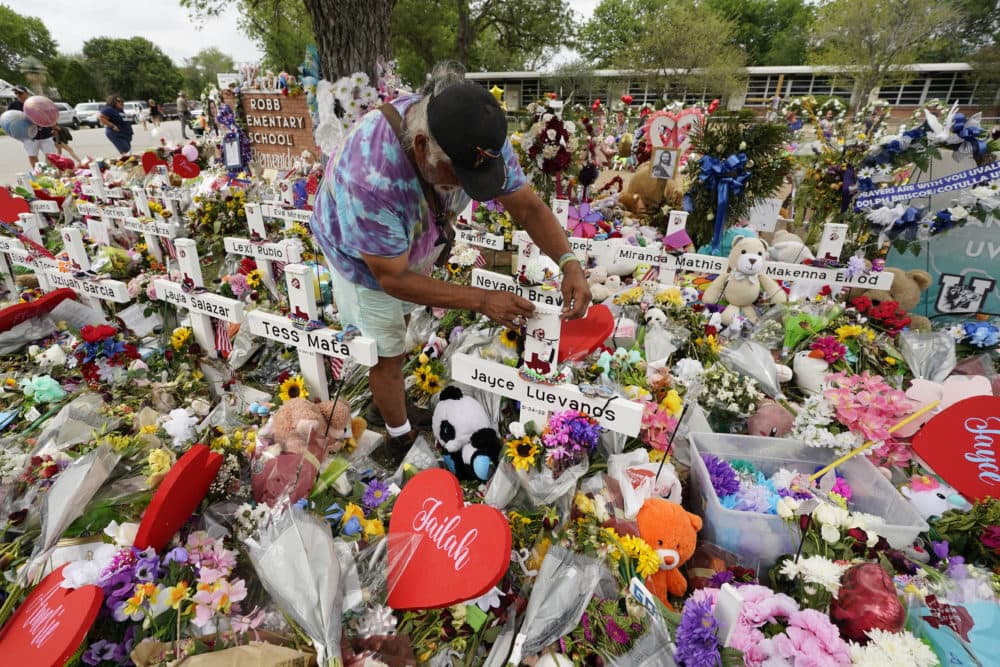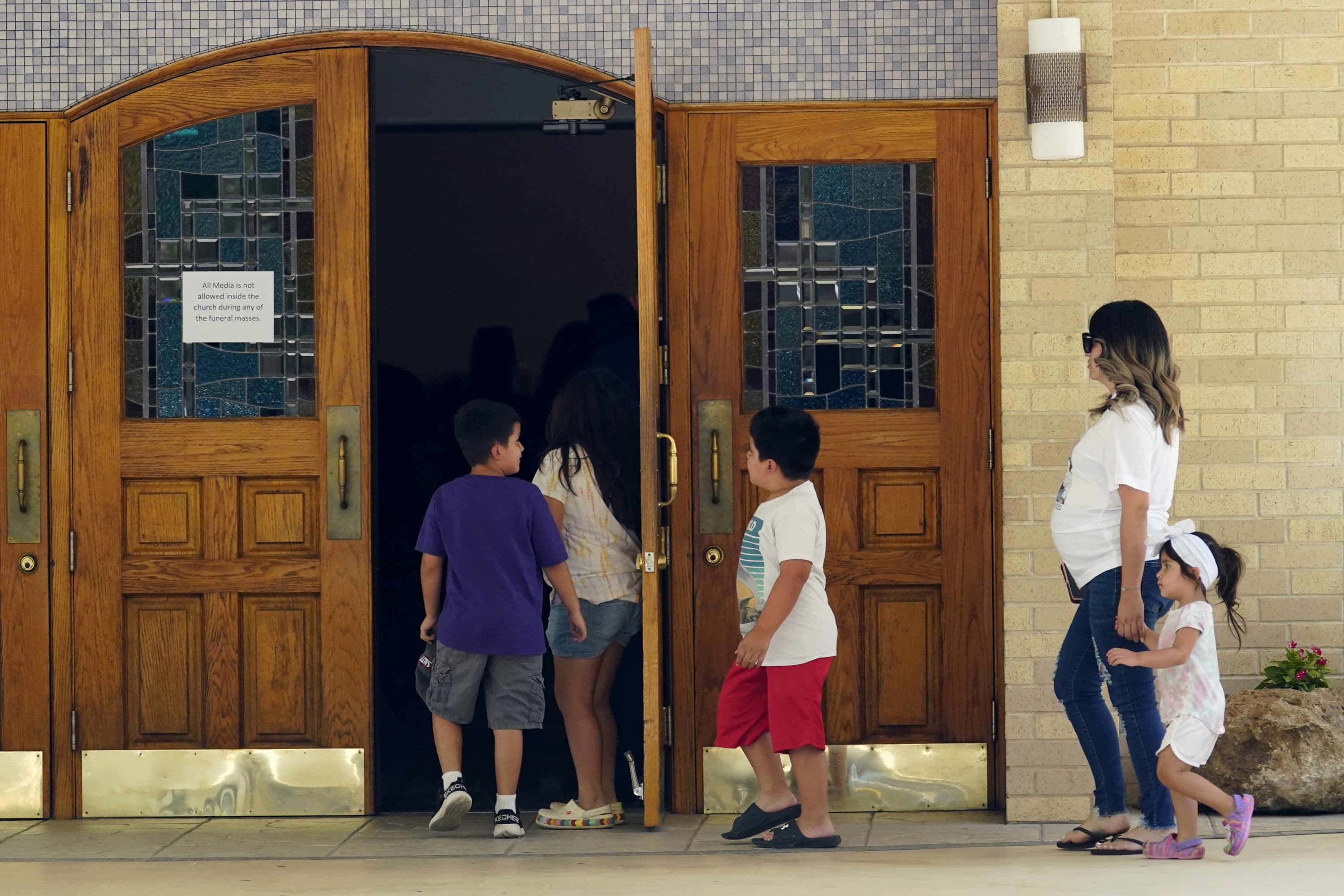Advertisement
Commentary
4 things parents must do for children after Uvalde — and every school shooting

The horrors of Columbine, Virginia Tech, Sandy Hook, Parkland and now, Uvalde, have brought our nation to its knees.
But following each shooting, days turn into weeks, candlelight vigils and student walk-outs subside and anger gives way to learned helplessness. The majority of Americans want increased gun control, whether from “red flag” laws or assault weapon bans. However, as a result of the twisted logic of our political system, the path towards protecting our children from guns has been blocked every single time.
As a child and adolescent psychiatrist with expertise in school threat assessments, I am often asked to provide guidance to parents following these horrific tragedies. Parents have looked to me to help them find words when their children ask about the shootings.
In the years since Columbine, the question has shifted away from “Why do these shootings happen?” to “How do we explain to our children why our country refuses to protect them?” It feels impossible to comprehend why a country’s government would decline to protect its very future. As adults, we are told that we need to check our own pulse, to gain control of our panic and hyperarousal. But how can parents remain calm when they know that the school shooter drills their children diligently practice will do nothing to protect them from an angry young adult with an AR-15?

How can we expect parents to be calm when even police officers appear too intimidated to go into an active school shooting without backup? How can parents check their anger when government officials declare that the answer to preventing these shootings is for schools to have a single door. So now our children can risk being trapped in school fires instead?
This nationwide feeling of parental helplessness — even for me, a trained clinician who has devoted 20 years of my life to doing intensive psychiatric evaluations to avert this strategy — is understandable. Yet I am reminded of Maya Angelou's words, “And still I rise.” Because we can't afford not to rise to the challenge of this tragedy. There are still ways that parents can, must, help their children.
1) So many times in sitting with families who have lost someone to suicide (myself included), the first task is to honor the pain. Not suppress it, or dismiss it, but make room for it. This is also true whenever we are grappling with any tragic loss, including homicide. There is often a fear that if we open ourselves up to the pain, we might allow the pain to control us. But I have found that when we make room for the grief, we also make room for comfort. Making room for grief also enables families in heroic ways: through advocacy, finding ways to honor the dead and mobilizing community support.
Advertisement
2) As parents, we can ask children what they understand, what their questions are and even, what their fears are. Parental instinct frequently compels us to reassure our kids quickly and move into fix-it solutions because it can feel intolerable to sit in the darkness. This act takes courage but I guarantee that sitting with our children's pain and fear and questions is the best way we can provide comfort.
There are still ways that parents can, must, help their children.
3) As parents, we must remind ourselves that we will never be able to keep our children 100% safe. Losing control starts from the moment you hold your baby in your arms. In this chaotic time, when our children seem more at risk than ever, it is important to remember that the natural evolution of parenting encourages us to let go of our children. Part of parenting is teaching our children to protect themselves by making good decisions. We as parents can loosen our grip when we feel secure enough that our children can manage the dangers they may encounter.
Even while fighting for better societal protections for our children’s safety, parents have to accept that there will always be risks and that we cannot be paralyzed by them. The key is to establish a solid, trusting relationship with your child — where your child knows that they can come to you with a problem and you won’t freak out, wrap them in bubble wrap, or lock them in the basement. We want to first listen and empathize. And then you will help them problem-solve when they are in over their head. I worked at a teen health center for 24 years, and teenagers often shared with me the perilous choices that they made: getting drunk and passing out on a freezing winter night, dating an abusive partner or looking to settle a score in a fight. We can’t erase challenges from our children's lives, nor should we seek to. Our job is to gently, albeit sometimes more assertively, guide them in navigating these challenges.
The soul of our nation is in crisis.
4) If your child is troubled, you may worry that he or she will turn violent. Don’t lose sight of the ways to help your child turn their life around. Analyses of school shootings repeatedly show missed opportunities for focused interventions. Students for whom I have been asked to perform safety evaluations are often on the cusp of major life transitions and believe that their future looks bleak. In Uvalde, the gunman was a high school dropout with little hope for his own future, and limited connections with others. In his book "Lost Boys: Why Our Sons Turn Violent and How We Can Save Them," Jim Garbarino interviewed young men who had murdered, and found shared trends of social isolation with little sense of personal responsibility to others.
There are things we can do to make a difference. For instance, after the Sandy Hook shooting, a fourth-grade teacher began asking her students privately who they would prefer to eat lunch with. By identifying the marginalized students who weren’t mentioned, she intentionally orchestrated connections between those students and their peers, and built their social skills.
Parents can create connection with struggling kids by remaining fiercely curious about struggles, strategizing how to address the challenges they are confronting and balancing this with responsive discipline and accountability.
As we witness unimaginable loss, I know that encouraging parents to be patient is asking a lot. The soul of our nation is in crisis. We can help our children by creating a holding environment for them, and making space for their grief.
